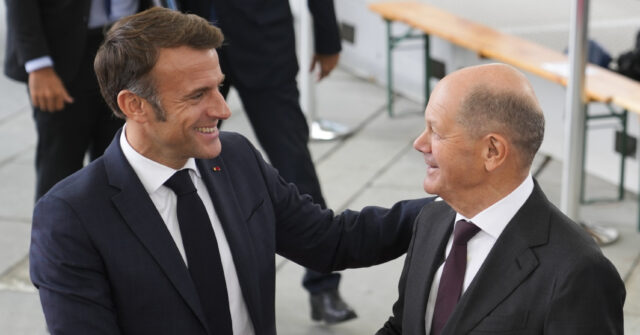French President Emmanuel Macron, despite facing challenges in implementing his reforms within France, aims to pursue a transformative agenda for the European Union (EU), urging for urgent changes to prevent what he describes as an impending demise of the EU. In a recent address at the Berlin Global Dialogue, which examined themes of a new economic era, Macron expressed grave concerns that the EU could be left behind by global leaders like China and the United States in critical developmental areas. He highlighted that if current practices persist, Europe risks falling out of the competitive global market within just a few short years.
Macron’s rhetoric was not merely alarmist; it was rooted in a call to action for Europe to reevaluate its position in the global order. He pointed out that the EU has been adhering to rules set by international organizations, such as the World Trade Organization, while both the U.S. and China often disregard these regulations when it serves their interests. In Macron’s view, Europe must adopt a more assertive, competitive stance, which could even mean reevaluating its relationships with these global institutions. He noted, “We should not be the only one in the room to just abide by the rules,” suggesting that a strategic shift toward a more insular approach could be necessary to safeguard European interests.
The French leader emphasized the necessity for a “simplification shock” in EU policies, arguing that the current approaches are failing to stimulate economic growth and innovation. Areas where Macron believes Europe lags behind include economic growth, investment, artificial intelligence, defense, and security. He pushed for a deepening of the EU’s single market rules, arguing that without significant reforms, the bloc could find itself in dire need of a rescue plan in as little as five to ten years. Macron’s vision for a revitalized Europe revolves around increasing investments and simplifying regulations to unleash European potential.
Domestically, Macron faces significant political challenges that complicate his ambitions for reforming the EU. His government is mired in a crisis characterized by a fragmented Parliament and political instability following unsuccessful attempts to assert dominance through snap elections. His focus on Europe is not just a reflection of his leadership ambitions but also a necessity to rally support and find coherence in a government that has struggled to maintain authority. Macron’s comments at the Berlin event underscored his determination to prioritize EU reforms as a pivotal area where he believes considerable growth opportunities lie.
Macron’s recurring warnings about the potential death of the EU have been increasingly pronounced, with references to various threats over recent months. For instance, he has expressed that the EU is at risk from external aggression, such as the threat posed by Russia, particularly in the context of the Ukraine conflict. His declarations reflect an overarching concern about European security and solidarity in the face of both internal and external threats, which he argues could threaten the EU’s foundational democratic values.
Emphasizing the importance of unity, Macron has implored European youth to embrace a sense of shared identity within the EU, cautioning about the dangers posed by nationalist movements gaining traction across the continent. He believes that the rise of right-wing populist parties illustrates a growing threat to the EU’s core principles of democracy and collective progress. Macron characterized this moment as a critical juncture for Europe, asserting that the EU cannot afford to be complacent or divided if it hopes to survive and thrive in the multipolar world landscape he envisions. His ongoing commitment to European reform highlights both his leadership aspirations and the pressing need to adapt to a rapidly changing global environment.

